How Priya Won a Second Chance at Her American Dream: A Story of Transnational Abandonment
This article is the first of a two part series on the impact of domestic abuse and transnational abandonment in the South Asian community, supported by the USC Center for Health Journalism and its 2021 Domestic Violence Reporting Fund, in partnership with Desi Collective, Narika and India Currents. The written project DesiDost-You’ve Got A Friend is accompanied by Chai with Sahelis, three audio recordings where survivors share deeply personal stories about their experience.
Other stories by them includes:
Part 1: Chai With Sahelis: A Desi Dost Project – Priya’s Story
Part 2: “It’s Not Just A Thappad” – Rennu’s Story – Chai With Sahelis: A Desi Dost Project
Part 3: “Don’t Take My Child From Me” – Anjali Kour’s Story – Chai With Sahelis: A Desi Dost Project
How Anjali Got Her Son Back: A Story of Transnational Abandonment & Child Custody
The Desi Dost Project: Impact Reporting At India Currents
Why Riya Didn’t Find A Safe Space From Intergenerational Violence
Beaten, But Not Broken. Tanya’s Story Of Domestic Violence
My Daughter Was Kidnapped & I Did Not See Her For 22 Years – Leena’s Story
Abused and Abandoned – When will our community step up to help survivors?
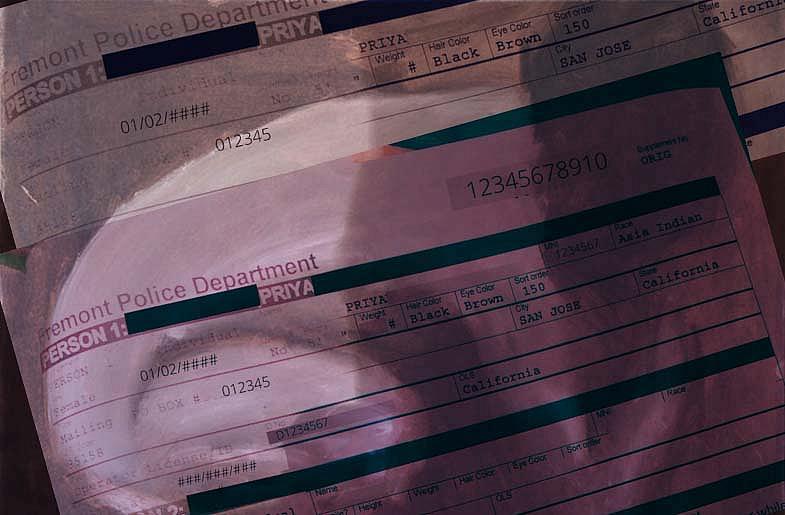
IndiaCurrents
Locked out of her Fremont apartment after a domestic dispute turned violent, Priya huddled terrified in a corner of the hallway. Her new husband had thrown her outside without a blanket, after shoving her onto a sofa and breaking her arm. Despite the shouting and slamming doors, said Priya, none of the neighbors came to help.
In the morning, after a cold winter night in the hallway, Priya called the Fremont police. But when they arrived Priya withdrew her statement.
“My husband told me he would commit suicide if I filed a complaint,” she recalled. “He was emotionally abusing me. I didn’t know what to do.”
That turbulent first year of marriage imploded a year later in 2015, when her husband took Priya back to Pune in India, initiated secret divorce proceedings, and returned to the US. He left her behind. Priya became, officially, another victim of transnational abandonment.
What is Transnational Abandonment?
Transnational abandonment is a form of domestic abuse when vulnerable immigrant women are abandoned in their country of origin by their husbands. This phenomenon is particularly prevalent in arranged marriages within the South Asian community, where victims face domestic violence, emotional abuse, cultural alienation, or financial exploitation from their husbands and in-laws.
Once they are deliberately removed from the US, these disposable women lose legal protections, rights to their homes, finances and even children.
A UK study concluded that the ‘stranding’ of a foreign national wife abroad in their country of origin by a husband, “was intended to prevent the wife from asserting their matrimonial or residence rights.” Women who “migrated to her husband’s country of residence, were ousted from or deceived into leaving their homes after a period of abuse, creating the phenomenon of transnational marriage abandonment.”
A 2011 report by Manavi suggested that the number of transnationally abandoned women in India had “reached staggering proportions.” In 2013, a study on stranded women reported that Indian authorities had estimated émigré husbands had abandoned nearly 30,000 women in India.
Manavi described the transnational abandonment of South Asian women by their husbands as the ‘new face of violence against women.’
In the US, the practice was under-reported with few statistics collected until the onset of the pandemic triggered an unprecedented wave of abandonment cases.
Transnational Abandonment Becomes the Face of Domestic Violence (DV)
As domestic violence spiked among women of color and minorities (NIH) during the pandemic, transnational abandonment began to manifest more frequently in South Asian (SA) immigrant communities.
Bindu Fernandes, Executive Director of Narika, a 30-year-old domestic violence organization in Fremont, California, reported a 3x increase in DV calls since March 2020 with 2 to 3 cases of transnational abandonment a week.
Narika primarily supports survivors from the South Asian community. Nearly all the calls from abandoned survivors were from women married to Indian nationals working in California, said Fernandes. “Ninety percent of South Asian clients were connected to the Bay Area alone.”
Wounded by Tanya Momi
As acts of violence towards women intensified worldwide in the “shadow pandemic,” so did the frequency of transnational abandonment by Indian nationals.
In her 2020 comparative study of Indian vs US-based Indian women who have experienced transnational abandonment, Dr. Shreya Bhandari at Wright State University in Ohio, concluded that, “If the husband or his side of the family did not feel that the woman was a ‘good wife’ or a ‘good daughter-in-law’, they made plans to replace her.” Women were getting discarded because they were not disciplinable.
Abandonment happens, noted Bhandari, when women are sent back to the natal family and not allowed in the matrimonial home, or sent back to the home country without return tickets to the US. However, if the wife returns to the US, then the husband moves cities and absconds.
“The ultimate goal,” said Bhandari, “is to get rid of her legally, and not be liable to pay her a dime.”
Why is it Happening?
Why are Indian immigrants, riding on the coat tails of their model minority narrative, perpetrating the unjustifiable practice of abandonment? And how do women like Priya, highly educated and independent, go from eager Indian bride to disenfranchised domestic violence survivor?
The answer lies at the intersection of Indian family dynamics, immigration policy and legal systems. For stranded SA survivors, transnational abandonment arises from a quagmire imposed by cultural roadblocks, tenuous immigration statuses, and legal systems in different jurisdictions. Survivors like Priya, caught in the tangle, have few options for asserting marital rights and seeking justice, whether at home or abroad.
In May 2014, Priya, an Indian national, arrived in the US following a conventional arranged marriage in Pune, India. She was 27. Her middle-class conservative family had hopes for the match. Priya’s US-based husband was a H1B visa holder, a computer engineer in the Silicon Valley, one of the hundred thousand foreign workers employed in its tech sector.
But, within days of her arrival, she said her husband slipped into a cycle of verbal, emotional and physical abuse that intensified over the first year of their marriage. For Priya, a software programmer who gave up a successful career in India to move to the US, being abused and exploited at the hands of her NRI (non-resident Indian) husband and family was not the American dream she had envisioned.
The Indian Community Chokehold
“Marriage plays a pivotal role” for married Indian women in a traditionally patriarchal society, wrote Shikha Bhattacharya, a DV researcher.
Arranged marriages are a marital labyrinth that Indian women need to navigate carefully. Societal structure in these families often revolves around multi-generational households which regard marriage as sacrosanct, a union preserved at any cost. Staying intact is prioritized over the wellbeing of any individual exposed to family conflict or partner abuse.
Fear and shame of societal scorn, “what will people say” often underlies a vicious cycle of DV perpetrated on victims. Often, women trapped in these relationships won’t leave for fear of disrupting the family dynamic, losing status, respect, financial security or their children, or bringing shame on the family by going to the police
Once her marriage collapsed and her husband bolted, Priya, at 28, became damaged goods in her conservative Indian community.
In India, her family was fighting divorce proceedings with her in-laws. Priya felt her presence would ostracize her family in their tradition-bound society. She decided to return to Fremont, California, and attempt a reconciliation with her truant expat husband, because, in her words, “In my whole family, there was no divorce.”
The Burden of Being a Woman
11a0.jpg?itok=rCs9LbTN)
But Priya’s husband wanted nothing to do with her and his family fully supported his decision.
Priya was expected to be a dutiful bahurani (daughter-in-law), a distinct, often unequal role that women assume as they go from daughter to wife in the continuum of Indian family and society.
Even though Indian society is making progress toward gender equality, traditional Indian families still want sons to propagate the family name, become caretakers in old age, and perform the last rites when they die.
Survivors told Desi Dost that in their own families, daughters got an education and equality. But they ran into roadblocks in the inherently patriarchal families they married into, which endowed sons and husbands with privilege and entitlement that they, as daughters-in-law, did not receive.
Rennu Dillon, an outspoken Punjabi survivor from the Bay Area, describes giving birth to a girl after an ultrasound confirmed she was having a boy. “When they handed us my first-born baby girl, my husband actually asked the doctor, will something grow after they’re born?”
Few families buck the system, so common tropes take root and thrive. Regardless of caste, religion or income level, an Indian woman must submit to her husband’s and family’s needs, dowry is a precondition for marriage, divorce is taboo, and domestic violence becomes just a way of life.
Religion and Culture enforce Dowry and Male Dominance
These were common themes in the stories survivors shared with the Desi Dost project. Though each woman is representative of India’s religious and ethnic diversity, the ancient but rapacious dowry system underwrites each of their disintegrating marriages.
Dowry has been illegal in India since the 1961 Dowry Prohibition Act was passed, but dowry related abuse continues in more sophisticated forms, said Bhandari.
“One week before my big fat Indian wedding their true colors emerged,” Rennu Dillon recalled. “My in-laws demanded, are you going to buy my son a house?”
“My advice to all young women,” Priya warned, “is to identify the red flags” when meeting prospective partners and their families. “Do not ignore them.”
“The patriarchy that has been used to silence the other…anything that transgresses a gender norm is punished, a person’s identity and personhood silenced, ridiculed or eradicated,” said Carolien Hardbolen from Sanctuary for Families, who has worked with South Asian survivors for over 20 years.
In fact, said Mona Kafeel of Texas Muslim Women’s Foundation (TMWF) a DV group in Plano, Texas, when a daughter marries, parents are congratulated with, “You are so lucky you don’t have that burden anymore.”
Priya’s arranged marriage meant she was expected to submit to her husband’s needs and to in-law demands.
But even Priya was aghast at the influence her mother-in-law exerted over her son. As a new bride, she expected her new husband to fulfill his conjugal duties. Instead, his mother demanded the couple sleep in different beds so they could not conceive a child in their first year of marriage. The mother-in-law believed that her son was in danger from Pitra Dosh, an astrological omen that could cast negative cosmic energy on any pregnancy that happened that year.
“How can you be so superstitious?” demands Priya.”You have a master’s degree in computer science. Can’t you use protection?”
Even so, the marriage was not consummated for several months.
The H1B Visa Chokehold
H1B Suspension by Trump Administration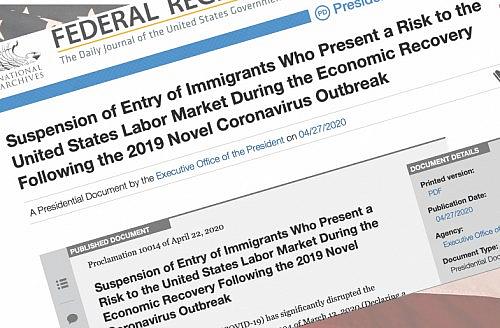
In 2016, with the help of a California-based DV agency Priya returned to the US while her H4 status was still valid. She figured she could carve out a new life and live the American dream she envisioned as a new bride.
It was a brave move, but a risky one. Priya’s H4 visa was due to expire in two months. That made her immigration status in the US tenuous.
As an H4 spouse, Priya was wholly dependent on her husband for her residency and for her EAD4 work permit.
Without a legal status Priya faced a daunting task of trying to reclaim her rights. A dependent spouse who loses her H4 visa becomes illegal and is subject to deportation.
Anjali Kour, an abandoned DV survivor, told Desi Dost, “An H4 visa holder is nothing without their sponsor. Your SSN, your medical insurance, driver’s license, your bank account, your lifeline – everything is in the hands of your H1B visa holder.”
In Silicon Valley, the majority of the 89,000 Indian nationals in the tech sector hold H1B visas, says The Migration Policy Institute. The H1B visa, a controversial temporary work permit, is the US’s largest non-immigrant visa program that allows companies to employ foreign workers with specialized skills. Over 74 percent of over 300,000 H1B visas went to Indian nationals in 2016 and 2017, reports USCIS.
But the thriving H1B workforce took a hit in June 2020. The Trump administration suspended the H1B program (revoked by Biden in 2021), to protect US workers in its America First program when the pandemic hit. Indian expatriates in Silicon Valley’s IT industry were its primary casualties.
Thousands lost employment or were furloughed. Without EAD4 work permits, dependent H4 spouses lost their jobs. It took a financial and emotional toll on Indian expatriate families, and exacerbated the DV crisis.
The Shadow Pandemic that followed the COVID-19 Outbreak
At Narika, Bindu Fernandes said that instances of domestic and transnational abandonment skyrocketed during the pandemic. Narika reported a staggering 86% increase in domestic violence clients served pre-pandemic. Nearly 2000 calls were made to their crisis helpline between January and June 2021.
Many calls were from Indian women who lacked the resources and knowledge to pursue their complaints through the court systems in both India and the US.
Monica LaBoskey, Managing Attorney at API Legal Outreach in Oakland, CA, said they saw nearly 2900 clients in the Bay Area last year. “We have seen a two-fold increase in the number of callers for domestic violence issues. Up to 10% of those clients were South Asian.”
The Rajya Sabha Bill on Women Facing DV Abroad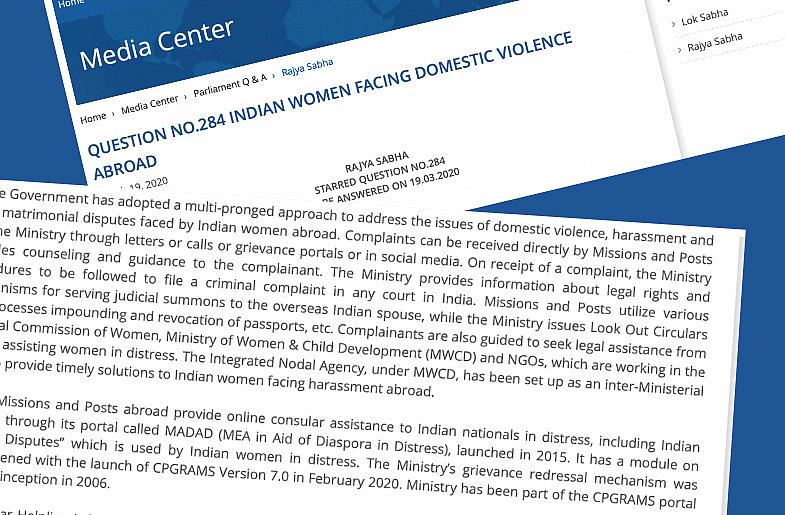
The shadow pandemic crisis finally forced the Indian government to take notice and take action. The Indian Ministry of External Affairs (MEA) had already recorded over 4000 complaints from stranded Indian national wives reporting marital harassment, abuse and abandonment, since 2017.
In February 2019, a Bill (No. 284) went to the Indian parliament offering guidance on legal and financial assistance for stranded Indian citizen spouses. Unfortunately, due to the pandemic, the Bill stalled, but is still under consideration in the Rajya Sabha.
In March 2020, the MEA announced Helplines and assistance at its Consular offices abroad, for Indian women facing marital harassment or abuse.
The Road to Abandonment
However, financial insecurity for employment-based immigrants was a trigger for DV long before the pandemic.
Priya said her Silicon Valley computer engineer husband “earned a six-figure salary,” but was reluctant to part with any of it.
“My husband accused me of wasting his money,” when she took an airport taxi the day she first arrived in the US, and for buying a box of sanitary products when she got her period. “He asked, can you make it last the whole year?”
“It’s such an Indian mindset. When you are earning in dollars you always convert the amounts into rupees.” He demanded she pay half the rent even though she had no income. He refused to sponsor her for an H4EAD work visa that would allow her to get a job. He fought in public spaces and made multiple attempts to abandon her on out-of-town visits.
The microaggressions morphed into verbal abuse and physical assaults, culminating in Priya’s abandonment in India.
The Red Thread of Control
Stop the pain by Tanya Momi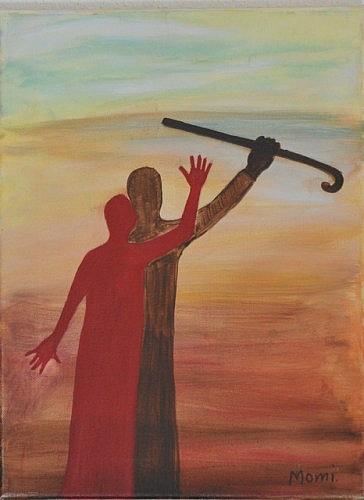
“DV is the perpetration of a dynamic of power and control over a victim that has many different manifestations. Often, religion, religious texts, and customs are used and manipulated to subject people to this dynamic,” said Hardbolen, who is the Senior Immigration Specialist at Sanctuary for Families. “There is a red thread of power and control.”
“Whatever tactics abusers employ, they want to overpower and control their victim.”
Rennu Dillon’s husband checked every box. He demanded dowry, gave her “my first Punjabi slap,” two broken noses, a push down the stairs when she was pregnant triggering a premature delivery of a 2-pound baby, and threatened her with deportation because she was, by his design, illegal. Rennu said he was a bigamist and a cheat. She was only 24. She did not file charges. She did not tell her parents about the deception. “They would fall apart.”
Her husband told her, “I wanted to marry a weak woman, you were too strong for me. I needed to control you.”
“Sometimes abuse happens in multigenerational families, where the abusive behavior is perpetrated by multiple people, or is perpetrated by only one or a few and known to others within the family,” said API lawyer Monica LaBoskey. “Sometimes, the abuser can be a parent or sibling, but known, enabled or allowed by the spouse of the victim.”
But “callers can reach out to API Legal Outreach,” added LaBoskey, to ask questions like “what are my rights?”, “how can I get legal protection?”, “can I get custody of my children?”, “can you stop him from letting his parents treat me this way?”, “can you stop his family from threatening mine in another country?” without shame or judgment, and to get legal responses and support.”
“If a woman does not know her baseline rights to live,” said Kafeel, “she cannot thrive.”
In South Asian communities DV remains a systemic, pervasive issue.
The Desi Dost Community Survey
So what do Indian Americans think of the DV crisis in their midst? In September 2021, Desi Dost ran a community survey on the India Currents website to find out.
More than half of the 55 respondents confirmed they have or know of others who’ve experienced and witnessed domestic abuse. Almost 40% stayed in their relationships, due to family pressure to keep up appearances or fear of losing finances and children.
Respondents admitted that fear of family retaliation (50%) and fear of their abuser (43%) kept women silent. While respondents were sympathetic to the plight of victims, very few were willing to take action.
Rennu Dillon said when she was nine months pregnant and locked out of her apartment, neighbors gave her blankets, “NON-INDIAN I STRESS, not A SINGLE INDIAN family ever helped me.”
While campaigning for TMWF, where 60% of clients are South Asian, Executive Director Mona Kafeel was asked, “Why are you airing dirty laundry in public?” She added that women asking for help from faith leaders were told, “If you follow your faith correctly, this will not happen.”
When Friends Turn their Backs by Tanya Momi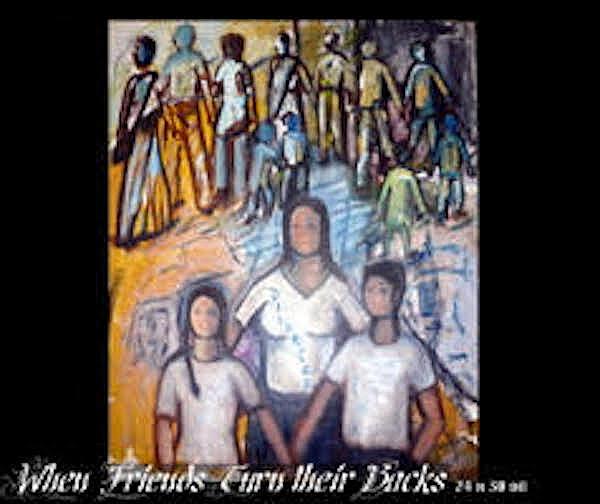
In a telling incident, a survivor who shared her story at a recent DV fundraising gala event told Desi Dost she was sad and humiliated that nobody spoke to her, apart from two guests who were survivors.
“Why were they even there? How do you create awareness if no one wants to listen to you?”
“Silence from the bystanders is the way that everyone is complicit in this,” remarks Hardbolen.
Bindu Fernandes admitted that raising awareness has put Narika in the community’s crosshairs, “We have been accused of breaking up families and planting ideas in survivors.”
Often survivors don’t have English language skills to access resources, but significantly, domestic violence is not a subject ever discussed in Indian families.
“There is no word for domestic violence in the 300 odd Indian languages,” agreed Fernandes.
When Survivors Seek Help
When survivors seek help, they are more likely to reach out to allies in the community rather than a DV agency.
Rennu Dillon recalled that “No one ever told me, leave him and go make your own life. Instead I got, why you’re leaving him? Sab aadmi aise karthe hain (all men do this). You have nice kids, a nice house, nice cars. Live with this. That’s the advice I got! I think I became powerless in this country because I knew nobody and had no immigration status. Who do you trust?”
Sisterhood by Tanya Momi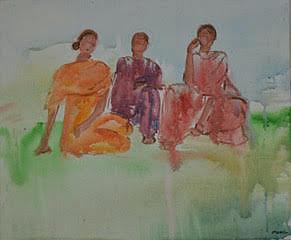
“Women rely on friends or landladies or South Asian women in the community,” who are well-intentioned, but untrained good Samaritans, observed Bhandari. “Unfortunately, not being social workers or trained DV advocates,” the ‘Auntie Brigade’ tend to re-victimize survivors with insensitive comments.
“Why did you sign those papers?” or, “The worst question you could ask an abused woman – why don’t you leave?”
In an ironic reversal of that question for Dillon, “beta, hum chodthe nahin husband ko (my child, we don’t leave the husband),” a Punjabi taxi driver refused to drive her to the airport when she tried to flee and her husband unexpectedly showed up. “If that taxi driver had come 5 minutes earlier, my life would have been different,” Dillon said regretfully.
Why Women Stay
So, people stay. Dependent women are reluctant to report abuse because they are ignorant about US laws, immigration and legal systems, and fear deportation.
“Women were going back to abusers rather than coming to mainstream shelters,” because mainstream agencies lack the language skills and cultural empathy South Asian survivors need,” explained Mona Kafeel. “No one understands if you are a Muslim, a Hindu, a Sikh or an atheist.”
At Sanctuary for Families, Carolien Hardbolen stressed that, “Most people are very scared of retaliation.”
“The stronger the hold of the family on the victim, the harder it is for her to articulate what she wants.”
Beaten but not Broken by Tanya Momi
Even though Sanctuary for Families offers a very attractive path to safety, Hardbolen explained, freedom can be scary.
“My clients tell me, I don’t know who I am or what I want. I have never been my own person, thought about what my desires and plans and aspirations are. I’ve only been defined by others, in relation to them. I have only been someone’s daughter, someone’s bride, someone’s wife or someone’s daughter in law. The thought of where I am and who I am scares me. I am nowhere. I don’t even know I exist.”
If freedom means “not only leaving your relationship but abandoning your entire community,” asked Hardbolen, “if you’ve never made any connections outside it, you’re like a fledgling bird in a brutal desert. What are you going to do?”
Survivors experience trauma they aren’t prepared to handle, explained Tara Fox, a clinical psychologist and Manager of the Clinical Program at the New York City Anti-Violence Project.
“Trauma hijacks the decision-making part of the brain, creating feelings of guilt and shame that prevent survivors from asking for help. “We put so much guilt on survivors – oh why didn’t you leave?” said Fox. “But when you are going through trauma, you often don’t get a choice.”
“It’s really important to understand the neurobiology of trauma, before we judge, before we put shame on anyone, because that is the biggest element that prevents survivors from reaching out for support.”
Can Survivors Move Forward?
At TMWF, Mona Kafeel insists that the community cannot rely on intervention alone. “We have to work on PREVENTION,” she said, explaining TWMF’s grassroots strategy to create alliances with faith-based and community leaders. “We chipped at it. We try to be in people’s faces – every community event and meeting. We try to identify four, five allies, have CPS (Child Protective Services) and law enforcement train them.”
“We made them realize that as faith leaders they are mandatory reporters. They could get into serious trouble with the CPS and the police if they don’t report. The imams become our first responders. You cannot just say cook well, clean house, follow faith, you will go to heaven.” As part of its awareness campaign for survivors, TMWF places informational literature at entry points into the community – churches, mandirs, mosques, grocery stores, salons and even restrooms.
For survivors seeking an adjustment of immigration status, the UVisa is an option. To qualify for a UVisa, applicants have to have been a victim of sexual assault and to have filed a complaint with law enforcement, said Sara Fain, staff attorney at the Immigration Institute of the Bay Area. At an October 29 Ethnic Media Services briefing, Blaine Bookey, Legal Director at CGRS, confirmed that in addition to a police complaint, “if someone is credible, under the law, their testimony should be enough. But sometimes judges can require corroboration. That could be a psychological evaluation or other medical evidence of the persecution, death certificates, letters from witnesses.”
A UVisa gives applicants work authorization for 4 years and with 3 years of having that authorization, they can apply for residency.
Currently more than 200,000 UVisa petitions are pending action from USCIS. Recent changes in USCIS regulations now provide work permits – Bona Fide Determination – to applicants awaiting UVisas.
The law says an abuser cannot force their spouse to leave the country against their will. It may be a qualifying crime for a UVisa. “If it is against your will,” said Fain, “if you don’t want to get on a plane, Don’t get on that plane!”
Priya’s Police Complaint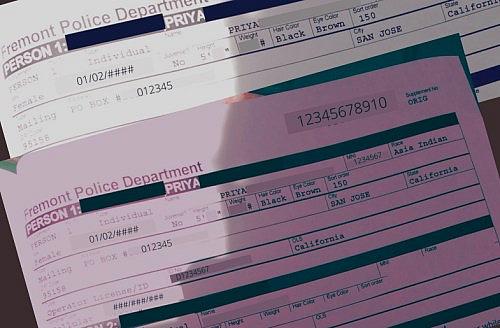
How Priya’s Journey Ended
The turning point for Priya came when she filed a formal complaint against her husband with the police. San Jose Family Justice Center then assigned her to a shelter, but it was not the safe haven she expected.
“A disaster happened,” Priya revealed. “One of the women there asked if I would become a prostitute. I refused. Priya reported her to the shelter manager who threw the woman out, but then, “her friends attacked me.”
The traumatic experience pushed her over the edge. She attempted suicide, spent a month in rehab and at multiple shelters.
“My life was a disaster,” said Priya. “My therapist told me to leave the shelter system if I wanted to transition to a normal life. Living continuously in shelters reinforces the cycle of trauma.”
Tara Fox concurred. Trauma affects “self-worth, sense of belonging, of being loved and accepted. It has this trickle-down effect where people often feel hopeless, “so therapy is essential to give survivors agency” – to make the choices, respect feelings, and undo this idea that nobody cares.
Priya resolved to break that cycle and reclaim her life. She credits the DV support system that helped get her life back on track.
Priya’s Police Report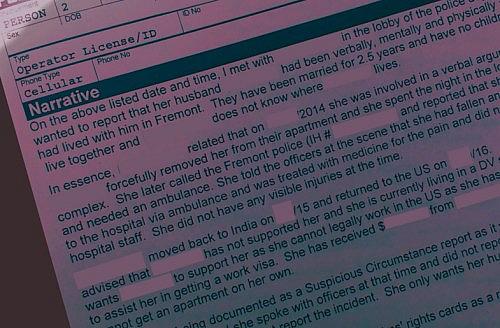
“I’m very fortunate I got help in every area from people”
Advocacy groups including Maitri, Narika, and SAVE helped with housing, rent, therapy, training and groceries. They assigned her an advocate to renew her expired passport and file taxes. She sent hundreds of emails to the ombudsman’s office, explaining her story and her financial hardships. And she trained as a DV advocate to help others in her predicament.
In 2016, lawyers from the Asian Law Alliance submitted Priya’s petition for a UVisa – a visa given to non-citizens who are victims of certain crimes and who have suffered mental or physical abuse due to domestic violence, sexual assault, or trafficking. Priya was not eligible for VAWA because she is not married to a US citizen or a lawful permanent resident.
With the threat of a police complaint for domestic abuse hanging over his future, Priya’s husband fled the Bay Area. She still has no idea where he is.
In 2021 Priya’s courage and resilience was rewarded when USCIS approved her U-Visa application.
“I’m a warrior,” said Priya. “My core is strong. That and my parents’ blessings.” She just accepted a job as a software engineer with a gaming company in the Bay Area.
Not every story of transnational abandonment has a happy ending. Getting a UVisa is not easy. Priya waited for 5 years.
Priya’s UVisa Approval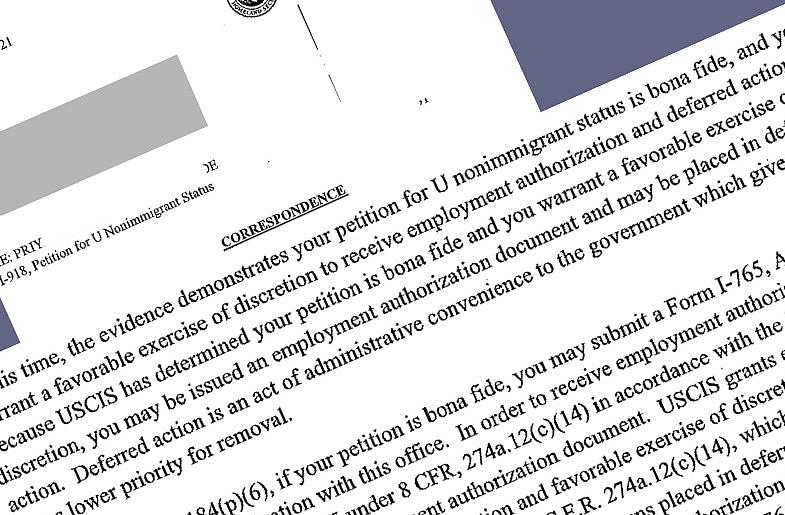
How do we get to Nahin (No), it’s not OK
There is a public health crisis in our community.
At its essence, transnational abandonment is a gender driven pattern of abuse inflicted on women experiencing DV from abusive husbands and their families. Immigrant women, already besieged by the pandemic and loss of EAD-4 work permits, are helpless. Their dependency and inaction, steeped in inflexible tradition, propels a vicious cycle of domestic violence, in-law abuse and abandonment.
How do Indian Americans explain their tolerance of domestic violence in their midst, especially when it’s fueling a silent crisis of wife abandonment without holding its men accountable?
We do it because we have normalized it. Survivors don’t even recognize that they are being subject to DV because they have also normalized it. Fox said, “It doesn’t feel good but maybe it’s not supposed to be good.”
“Is there equity in that relationship? Nahin. How do you get to it’s not ok? That is such a fundamental concept that we have to change,” argued Kafeel.
Women facing violence need proof that they can take control of their lives and know their rights. It must begin with balanced, straightforward conversations about our prejudices and fears. What survivors need most from our community is support and respect, agency to reclaim their lives and acknowledgement of the injustice perpetrated on them. We have to help them break the cycle of hopelessness.
Doesn’t everyone deserve healthy relationships?
This article is the first of a two part series on the impact of domestic abuse and transnational abandonment in the South Asian community, supported by the USC Center for Health Journalism and its 2021 Domestic Violence Reporting Fund, in partnership with Desi Collective, Narika and India Currents. The written project DesiDost-You’ve Got A Friend is accompanied by Chai with Sahelis, three audio recordings where survivors share deeply personal stories about their experience.
The names of some survivors have been changed to protect their identity.
Meera Kymal is the Contributing Editor at India Currents and a producer at DesiCollective.
Anjana Nagarajan-Butaney is a producer at DesiCollective. She is interested in strengthening communities by exploring the intersection of politics, science & technology, gender equality, social justice and health.
Artwork: by Tanya Momi artist and DV survivor
Lead Image: Vedin Kymal
If you or anyone you know needs help, please contact:
Narika : 1-800-215-7308
Maitri : 1-888-8624874
Raksha : 1-866-56-ABUSE
Domestic Violence Hotline : 1-800-799-SAFE (7233)
**
This content is intended only for mature audiences. CW/TW: domestic violence, language, mental health, mental illness, depression, su*c*de, violent imagery, body image, anger, anxiety, abandonment.
Meera Kymal and Anjana Nagarajan-Butaney are grateful to the survivors who spoke to us with such honesty and courage and for the information shared by the experts and advocacy organizations listed below that work tirelessly with survivors of domestic violence.
Bindu Fernandes – Executive Director of Narika
Narika – Free, confidential, non-profit South Asian domestic violence advocacy and support organization based in Fremont, CA that promote women’s independence, economic empowerment and well-being
Maitri – Free, confidential, non-profit organization based in the San Francisco Bay Area that helps families and individuals from South Asia facing domestic violence, emotional abuse, cultural alienation, or family conflict.
Manavi – direct service provider, social change agent and diversity trainer in the mainstream movement to end violence against South Asian women in New Brunswick, NJ.
Rennu Dhillon – Entrepreneur, Community Activist, Author, Motivational Speaker and DV survivor
Dr. Shreya Bhandari – DV researcher for 15 years and Professor of Social Work at Wright State University.
Dorchen Leidholdt – Director, Legal Center, Sanctuary for Families
Carolien Hardbolen – Senior Immigration Specialist at Sanctuary for Families
Sanctuary for Families – Offers free services for freedom from gender violence for all survivors living in New York City, regardless of gender, sexual orientation, age, and marital or immigration status.
Shah Peerally – Immigration Lawyer at Shah Peerally Law Group PC
Mona Kafeel – Executive Director of TMWF
Texas Muslim Women’s Foundation(TMWF) – empowers, promotes and supports all women and their families with programs designed to promote peace in the home and the community through a comprehensive strategy of prevention and intervention.
Monica LaBoskey – Managing Attorney at Asian Pacific Islander Legal Outreach
Thao Weldy – Director, Development and Finance, Asian Pacific Islander Legal Outreach
Asian Pacific Islander Legal Outreach (API Legal Outreach) – is a non-profit in the SF Bay Area that provides culturally competent and linguistically appropriate legal representation, social services, and advocacy for the most marginalized segments of the community including low-income women, seniors, recent immigrants, and youth.
Tara Fox – Clinical Psychologist
New York City Anti-Violence Project – empowers lesbian, gay, bisexual, transgender, queer, and HIV-affected communities and allies to end all forms of violence through organizing and education, and supports survivors through counseling and advocacy.
Sara Fain – Staff Attorney and Program Manager at Immigration Institute of the Bay Area
Immigration Institute of the Bay Area (IIBA) – provides high-quality, affordable immigration legal services, education, and civic engagement opportunities for immigrants, refugees, and their families.
SAVE – provides shelter, support, and educational opportunities for individuals and families to survivors of DV in Alameda County, CA.
Asian Law Alliance – non-profit organization providing equal access to the justice system for Asian Pacific Islander and low-income populations in the Silicon Valley.
Tanya Momi – Artist, entrepreneur and DV survivor
Sheetal Ohri – Entrepreneur, author and DV survivor
Anindita Bhattacharya – Assistant Professor at the School of Social Work & Criminal Justice, University of Washington, Tacoma
Rohini Hughes – Congressional Speaker/Witness,Military Family Advocate and DV survivor
National Military Family Advocacy Organization (NMFAO)
Rima C – Board member at Narika
Kelci Reiss – Research Program Coordinator at Johns Hopkins School of Nursing
[This article was originally published by India Currents.]

